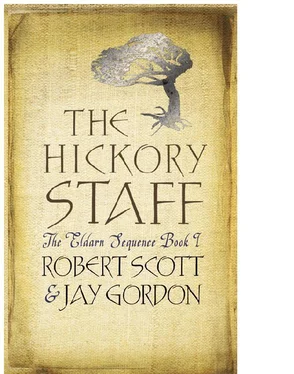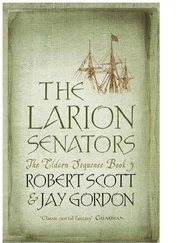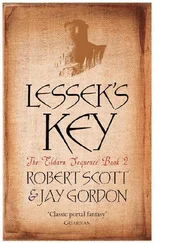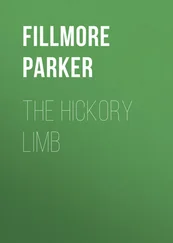Rob Scott - The Hickory Staff
Здесь есть возможность читать онлайн «Rob Scott - The Hickory Staff» весь текст электронной книги совершенно бесплатно (целиком полную версию без сокращений). В некоторых случаях можно слушать аудио, скачать через торрент в формате fb2 и присутствует краткое содержание. Жанр: Фэнтези, на английском языке. Описание произведения, (предисловие) а так же отзывы посетителей доступны на портале библиотеки ЛибКат.
- Название:The Hickory Staff
- Автор:
- Жанр:
- Год:неизвестен
- ISBN:нет данных
- Рейтинг книги:4 / 5. Голосов: 1
-
Избранное:Добавить в избранное
- Отзывы:
-
Ваша оценка:
- 80
- 1
- 2
- 3
- 4
- 5
The Hickory Staff: краткое содержание, описание и аннотация
Предлагаем к чтению аннотацию, описание, краткое содержание или предисловие (зависит от того, что написал сам автор книги «The Hickory Staff»). Если вы не нашли необходимую информацию о книге — напишите в комментариях, мы постараемся отыскать её.
The Hickory Staff — читать онлайн бесплатно полную книгу (весь текст) целиком
Ниже представлен текст книги, разбитый по страницам. Система сохранения места последней прочитанной страницы, позволяет с удобством читать онлайн бесплатно книгу «The Hickory Staff», без необходимости каждый раз заново искать на чём Вы остановились. Поставьте закладку, и сможете в любой момент перейти на страницу, на которой закончили чтение.
Интервал:
Закладка:
‘Just push the clamp down and you’re done,’ Michael directed impatiently. Tim, who was small and not very strong, struggled with the clamp attaching his scuba tank to the buoyancy compensator. ‘Let me help you,’ he said finally, pulling his feet from the water and struggling to stand.
‘I can do it,’ Tim grunted as he pushed hard to close the clamp around the tank. ‘See? Let’s go.’
‘Okay, where should we head?’ Tim had virtually memorised the lake floor.
‘Forty feet for sixty minutes,’ Tim suggested. ‘We’ll swim over near the big rocks where those guys are fishing and then cover the flats to the plane. We can head back this way when we hit five hundred pounds.’
‘That’s cool. Maybe we’ll find some lures or something.’ Michael spat into his mask to mitigate fogging, then, holding the mask and tank, he rolled from the dock into the water. He tucked his face down onto his chest as he felt the icy water rush into his wetsuit between his hood and the back of his jacket. That was always the worst moment, until his body temperature warmed the thin layer of water between his skin and the neoprene; in just a few seconds he felt quite comfortable, despite the cold. He looked up when he heard a splash and watched as Tim leapt feet-first into the lake, then adjusted his facemask and kicked towards the bottom.
Fifty minutes later, Michael motioned to Tim: five minutes before they needed to head back to the dock. Tim was playing outside the fuselage of the aeroplane, pretending to pilot it like a submarine through the depths of Sumner Lake. They had found two fishing lures and seventy-five cents near the rock outcropping about a hundred yards west of the aeroplane; Tim was thrilled with their discovery and Michael could hear him yelling, even through his regulator. Their find had been followed by a long swim to the crash site across the area Tim called ‘the flats’, a stretch of barren ground with nothing but sand, rocks and a few plants dotting the brown expanse. Tim waved once and headed out across the flats towards the dock. He was the faster swimmer; Michael put his head down and kicked as hard as he could to keep up.
They were halfway across when something caught Michael’s eye. It looked like a starfish half-buried in the sand, glinting momentarily in the sun. Michael stopped and waited for the sand to settle before he reached for the small star-shaped object. It resisted his initial tug and Michael realised the buried item was larger than it first looked. As he pulled harder, the strangely shaped metal object came free in a cloud of silt. He raised his find to his facemask: a spur. He shouted for Tim, but his friend was already out of range. As he polished the edge with his thumb, Michael could make out the letters ‘US’ etched gracefully onto the side near where the spur attached to a boot heel.
This was a great find, the best treasure the two divers had ever pulled from Sumner Lake. The letters carved into the metal meant it must have come from a soldier or a cavalry rider. Michael could barely contain himself as he continued searching the sandy bottom, hoping to uncover more – Mr Meyers would surely give them at least five dollars for the single spur, but if he found its mate they’d be worth much more. He checked his pressure gauge, and saw he had only two hundred PSI left in his tank. Looking around, he made a mental note of the spot: he and Tim would come back the following weekend.
Michael was running his hand through the sand one last time when he saw the key. It didn’t look like an ordinary key: it was long and flat, with two differently shaped teeth protruding from both sides of one end. It had the letters BIS etched into one side, the number 17C carved into the other. This would be one for Mr Meyers’ key jar, the huge glass jar the old man claimed his great-grandfather had used for making pickles in Austria in the 1800s. Today it held hundreds of keys, many of them fitting antique locks, like those in the cabinets and wooden chests for sale in Mr Meyers’ shop. Others were thrown into the jar in exchange for a wish. ‘They are the keys to the known world,’ Mr Meyers told all who asked. ‘If you make a wish when you drop one in, it will always come true.’ Michael was too old to believe such fairy stories, but Tim loved to drop keys into the enormous jar.
Michael slipped his latest find inside his wetsuit, gripped the spur like a recovered national treasure and swam hurriedly to the dock.
IDAHO SPRINGS, COLORADO
Last Fall
Steven Taylor walked slowly across Miner Street to the entrance of the First National Bank of Idaho Springs. Steven had few physical characteristics that would make a passer-by take more than a cursory glance in his direction. Slightly shorter than average, he was green-eyed, with a shock of unruly brown hair. He was pale, more from genetics than any aversion to sunlight; rather than tanning he slid gradually from the cold ivory he sported in winter to the alternating blotchy pinks and deep sunburned reds of summer.
His face was a battlefield between worry wrinkles creasing his forehead and laugh lines tugging at the corners of his close-set eyes and surprisingly delicate mouth. He was attractive to the few women who knew him well, more for his wit than his physique, though, as an avid weekend sportsman, he was in good physical condition – and this despite his poor eating habits. Steven’s clothes appeared to have been borrowed from two people: one a thickset man with low, slat-sided hips and the other a lean athlete with a penchant for overworking his arms, shoulders and upper body.
It was 7.45 a.m. as Steven fished in his coat pocket for keys to the front door. He’d been holding a pile of files in one hand and a cup of coffee in the other and was forced to put the paper cup in his mouth, gripping the edge firmly with his teeth as he dug through the pockets of his wool blazer. Looking up towards the mountains above Clear Creek Canyon he could see the yellow leaves of the intermittent aspens, now fully changed from their spring green. They dotted the hillsides among the hegemonic green expanse of the Ponderosa pines. Autumn came early to the canyon. The coming winter would be another long one. I’ve got to get out of here, he thought, then laughed at himself: I think that every morning.
‘Hello, Steven,’ Mrs Winter called. She was sweeping the sidewalk in front of her pastry shop next door and stopped to offer a quick wave.
‘Good morning,’ he answered, his voice muffled by the cup, and burned his upper lip in the attempt. ‘Ouch, damnit.’ Steven dropped the coffee cup onto the sidewalk, splashing his shoes.
‘How’s Mark this morning?’ Mrs Winter asked, ignoring the coffee accident.
‘He’s fine, Mrs W,’ Steven answered. ‘He’s teaching the Stamp Act today… was up late last night working on some way to make it a bit more palatable for the kids.’ Mark Jenkins was Steven’s roommate; he taught US and world history at Idaho Springs High School.
‘Oh, that’s exciting: one of the causes of the Revolutionary War. Tell him I said keep up the good work.’ Mrs Winter had known Steven since he was a boy, when his family moved to Idaho Springs. Her pastry shop was one of many local businesses kept afloat by tourists stopping for gas off the interstate. Not many people visited Idaho Springs for more than a few hours; the local LATGO and Sidney mines did not draw many from the masses who rushed by on their way to the ski resorts of Breckenridge, Vail or Aspen.
Steven had started working in the bank after completing his MBA at the University of Denver. He was a bright, successful graduate student, and he’d been headhunted by a number of investment firms from San Francisco, New York and Chicago – but he had procrastinated too long and lost out on several lucrative positions. He put it down to fate and bad luck and climbed back up Clear Creek Canyon to take the assistant bank manager’s job for a year; he planned to accept the next decent offer that came his way. That was three years ago. Now he couldn’t remember why he had hesitated to accept the jobs when they had been offered. He didn’t love the bank business or investment fields, certainly not the way Mark loved teaching. He studied business because he knew it would pay well, but it didn’t inspire him to study further, or to explore the nuances of financial theory in action. Actually, he could remember very little that inspired him that much – so he wasn’t really surprised when he found himself still here, still home, after three years. Steven never actively sought inspiration; he expected it to come one day, in a great metaphysical epiphany. He would wake one morning and find his calling waiting for him with the morning paper. It hadn’t shown up yet, and here he was, as usual, opening the bank at 8.00 a.m., although this time with no coffee and stained shoes.
Читать дальшеИнтервал:
Закладка:
Похожие книги на «The Hickory Staff»
Представляем Вашему вниманию похожие книги на «The Hickory Staff» списком для выбора. Мы отобрали схожую по названию и смыслу литературу в надежде предоставить читателям больше вариантов отыскать новые, интересные, ещё непрочитанные произведения.
Обсуждение, отзывы о книге «The Hickory Staff» и просто собственные мнения читателей. Оставьте ваши комментарии, напишите, что Вы думаете о произведении, его смысле или главных героях. Укажите что конкретно понравилось, а что нет, и почему Вы так считаете.












